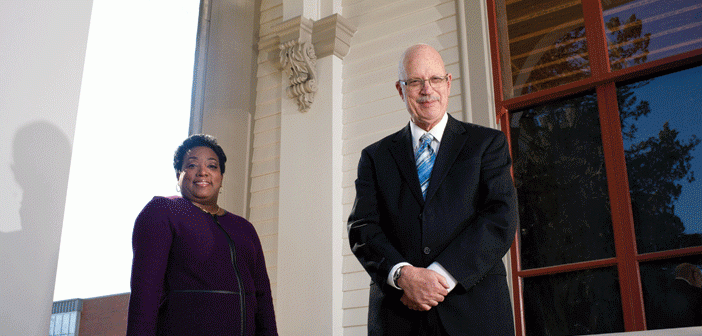As a reader from the South and a former Harlem science teacher, respectively, we took interest in the recent article on Brown’s relationship with Tougaloo College (“
Closing the Gap,” Winter 2015). The perspective of our classmates who hail from this important linkage has been an invaluable component of our medical education, yet we are concerned that the exchange may not go both ways, as the piece points out. Specifically, we wonder why the elective clerkship that once sent Alpert Medical School students to Jackson Memorial Hospital to learn medicine and explore health disparities in Mississippi has fallen by the wayside. Considering the experiences of our classmates, Alpert Medical School students are eager to learn outside of Rhode Island. Many pursue research or engage in volunteer activities overseas; still more complete away electives at prestigious academic medical centers around the country. Why does nobody want to go to Jackson? Just in the past year, Alpert students launched the Ferguson Decoded Project, hosted a “die-in” to protest police brutality, and have taken to social media to post #BlackLivesMatter.
In the spirit of the Brown-Tougaloo Partnership, we would like to encourage our classmates to leverage this momentum by considering a rotation in Jackson. And Brown, known for supporting students, should step forward to re-open the elective. Where better to learn and advocate for patients than in a state that was at the epicenter of the civil rights movement and has long ranked as having the least equitable health care in the country?
Sean R. Love MD’17 and
Linnea Sanderson ’06 MD’17
Providence, RI
In the recent article “Closing the Gap,” by Phoebe Hall, the author states that a “significant number of Americans may not find a doctor who looks like them.” This statement is both ill con-ceived and offensive. Perhaps Ms. Hall can explain how being the same age, sex, or race as a patient improves my ability to care for them? As a white, male physician in his 50s, does this prevent me from practicing obstetrics, pediatrics, or in areas with mostly minority residents?
In the spirit of Martin Luther King, I would hope that I am judged not by the color of my skin but by the content of my character. It is dangerous to label individuals by age, race, sex, or sexual orientation. It is further dangerous to assign behaviors to an individual based on that individual’s membership in a certain demographic. To do so encourages intolerance of others and of our differences. Let people show you what they are about.
Nicholas G. Carras, MD ScM’87
Long Island, NY
Send us a line
Please send letters, which may be edited for length and clarity, to:




